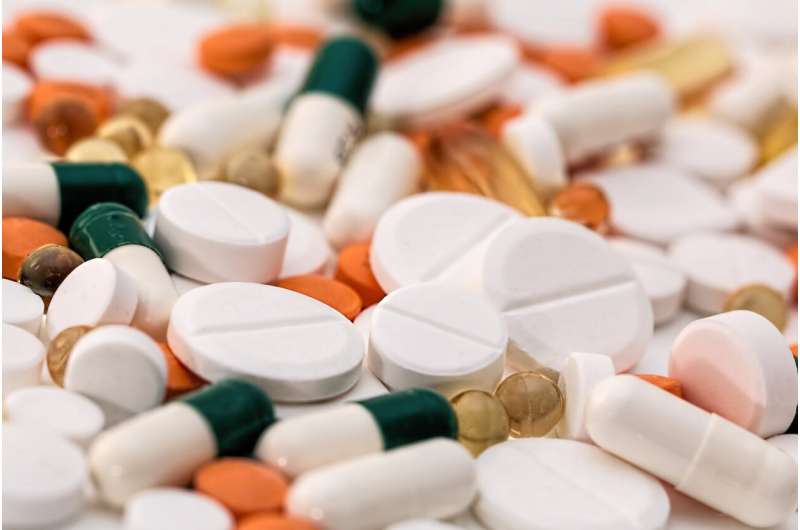Engineering team creates monitoring toolkit to speed production of biologic drugs

Two Rutgers University engineers specializing in the process of making drugs derived from living organisms have created an analytical tool they expect will accelerate the discovery and production of biologic drugs that are often at the cutting edge of biomedical research.
In an article that is the cover story in the American Chemical Society journal Analytical Chemistry, the researchers provide details about what they call an “automated toolkit”—or more formally, the N-GLYcanyzer—and its potential to rapidly monitor drug quality during production of biologics, which can range from vaccines to recombinant therapeutic proteins. While most biologics are tested at the end of the manufacturing process for quality and uniformity, the Rutgers toolkit can monitor biologics as they are being produced and enable the drugs to meet the quality compliance needs of regulatory agencies, such as the U.S. Food and Drug Administration (FDA).
“This tool allows us to monitor the biologic drug quality in near real-time during the biomanufacturing process,” said author Shishir Chundawat, an associate professor in the Department of Chemical and Biochemical Engineering in the Rutgers School of Engineering. “Continuous monitoring and control of biomanufacturing processes are critical to ensuring drug quality. Such advanced tools will help the industry save money by avoiding production of drug lots or batches that deviate from regulatory requirements, ultimately resulting in lower healthcare costs to benefit patients.”
Unlike conventional pharmaceutical drugs that are made through chemical synthesis, biologic drugs are made using cells, proteins or genetic material either manipulated by biotechnological techniques or drawn directly from humans, animals or microorganisms. While biologics can offer revolutionary types of treatments, such as monoclonal antibodies to treat COVID-19, they are difficult to make because they are extremely sensitive to changes in the production environment. Bioprocesses are also easily contaminated by microbes and can be ruined by even slight variations in process conditions such as temperature.
The new tool is an automated process analytical technology (PAT) that employs a targeted biomolecule sensor system controlled by software. It homes in on a universal biochemical process active in most living cells called protein N-glycosylation, where proteins modify their surfaces by attaching complex sugar molecules known as glycans. The PAT system can rapidly track changes in these sugars and can detect when cellular processes go awry, such as when sugar molecules are not attached properly or incorrect sugars are attached to proteins, which directly impacts the safety and efficacy of the biologic drug.
“Our system will allow complex biologics to be produced with molecular-scale precision,” said co-author Aron Gyorgypal, a doctoral candidate in the Department of Chemical and Biochemical Engineering at Rutgers who led the study. “Basically, we are able to check the drug’s quality rapidly, multiple times during the process, to know for a fact that the biologic that is being produced is following the preferred reaction trajectory that meets both regulatory and industrial quality control expectations.”
This work was supported by the FDA because of the importance of improving manufacturing processes for biologics and “biosimilars,” namely generic versions of trade name biologics, Chundawat said. As a result, details to recreate this PAT system have been made readily available online to facilitate broader adoption by various stakeholders including the biopharmaceutical industry, as well as drug regulatory agencies.
The researchers tested the robustness of their PAT by tracking the manufacture of Trastuzumab, a biologic breast cancer drug, over its 14-day production cycle. Based on the findings, they hope such technology will make it possible to greatly expand the production of biosimilars.
Federal regulators have been hesitant to allow wide-scale production of biosimilars because of quality and safety concerns, Chundawat said. “The FDA will have a lot more confidence about a drug product that has similar advanced analytical tools being used for monitoring its manufacturing process,” Chundawat said.
Aron Gyorgypal et al, Integrated Process Analytical Platform for Automated Monitoring of Monoclonal Antibody N-Linked Glycosylation, Analytical Chemistry (2022). DOI: 10.1021/acs.analchem.1c05396
Citation:
Engineering team creates monitoring toolkit to speed production of biologic drugs (2022, May 18)
retrieved 18 May 2022
from https://phys.org/news/2022-05-team-toolkit-production-biologic-drugs.html
This document is subject to copyright. Apart from any fair dealing for the purpose of private study or research, no
part may be reproduced without the written permission. The content is provided for information purposes only.
For all the latest Science News Click Here
For the latest news and updates, follow us on Google News.

